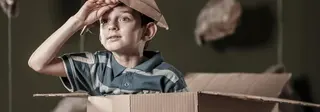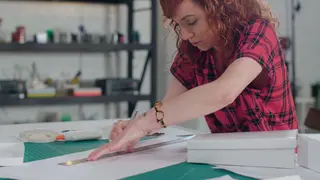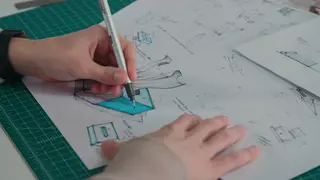
Cardboard boxes, those indispensable catchalls that carry, store and preserve our most prized possessions are a relatively modern invention. It is hard to believe but the cardboard box has only been around for about 200 years, and the current corrugated ones we know today, that transport our goods and find their ways to our doorstep, have only been around about 150 years.
But not a lot is known about the history of the cardboard box. There is really no official or definitive history. But a few publications and organizations, such as Gizmodo and National Museum of Play to name a few, have attempted. After reading through their timelines and myriad other histories, we have pieced together a brief history of the cardboard box.
The first documented reference to the cardboard box was in 1817 when it was used for a German board game called “The Game of Besieging.” During this time some attribute a British industrialist named Malcolm Thornhill with creating a single-sheet cardboard box while others credit the business M. Treverton & Son. These boxes were made of simple paperboard.
It would not be until the 1850s when another invention would truly shape what would become the cardboard box we know today. In 1856, Edward Allen and Edward Healey reportedly wanted to find a material that could keep the shape of their tall hats. As a result, the pair is credited with inventing a corrugated paper to use as a liner for the hats. Later in 1871, Albert Jones of New York was awarded a patent in the United States for “improvement in paper for packing” that resulted in the corrugated board we are familiar with today.
About 20 years later Robert Gair, a Scottish born owner of a paper bag factory, put the structure and the material together to make what we know as the modern cardboard box. Through a mishap, Gair discovered that if he set the blades on his equipment just so, he could both crease and cut out a cardboard box in one step. And in 1879, he created the first mass produced cardboard boxes. Once a multi-step process, the updated production of the cardboard box would cause its numbers to explode.
By the turn of the 19th century, the cardboard box would become the unique, ubiquitous and versatile creation we know and appreciate today.



